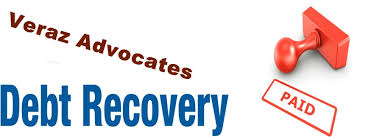
Debt recovery is a crucial legal service in Nigeria, aimed at assisting individuals, businesses, and financial institutions in reclaiming outstanding debts. Given the prevalence of unpaid debts in commercial and personal transactions, professional legal intervention becomes necessary to enforce repayment while adhering to Nigerian laws.
Legal Framework for Debt Recovery in Nigeria
Debt recovery in Nigeria is guided by key legislations and regulations, including:
- The Companies and Allied Matters Act (CAMA): Governs debts involving corporate entities.
- The Debt Recovery and Bankruptcy Act: Establishes procedures for reclaiming debts and addressing insolvency.
- The Evidence Act: Determines rules for presenting evidence in court proceedings.
- The Nigerian Constitution (1999, as amended): Provides the legal framework for judicial intervention.
The primary courts handling debt recovery matters include the Federal High Court and State High Courts, depending on the parties and jurisdiction of the dispute.
Debt Recovery Process
- Demand Letter
A formal demand letter is issued to the debtor, outlining the outstanding debt and requesting repayment within a specified period. This letter often serves as a pre-litigation step to encourage settlement outside court. - Negotiation and Mediation
Before resorting to litigation, debt recovery lawyers often attempt negotiation or alternative dispute resolution (ADR) to reach a mutually beneficial agreement. This approach saves time and reduces costs for both parties. - Litigation
If all pre-litigation efforts fail, the creditor can initiate a lawsuit against the debtor to recover the outstanding sum. The court process involves filing a claim, presenting evidence, and obtaining a judgment for debt repayment. - Enforcement of Judgment
Upon obtaining a court judgment, enforcement mechanisms are activated. These may include:- Garnishee proceedings (seizing funds in the debtor’s bank account).
- Attachment and sale of the debtor’s property.
- Writ of execution (enforcement of court orders).
- Bankruptcy or Winding-Up Proceedings
In cases where the debtor is insolvent, bankruptcy or winding-up actions can be initiated to liquidate assets and recover debts.
Challenges in Debt Recovery
Debt recovery in Nigeria faces several challenges, including:
- Lengthy Court Processes: Court congestion often delays resolutions.
- Debtor Evasion: Some debtors evade payment by concealing assets or funds.
- Enforcement Issues: Difficulty in enforcing court judgments due to legal technicalities.
Role of Legal Practitioners
Experienced legal practitioners play a pivotal role in debt recovery by:
- Issuing legally sound demand letters.
- Negotiating settlements to avoid lengthy litigation.
- Representing clients in court to obtain and enforce judgments.
- Providing advisory services to prevent future debt issues.